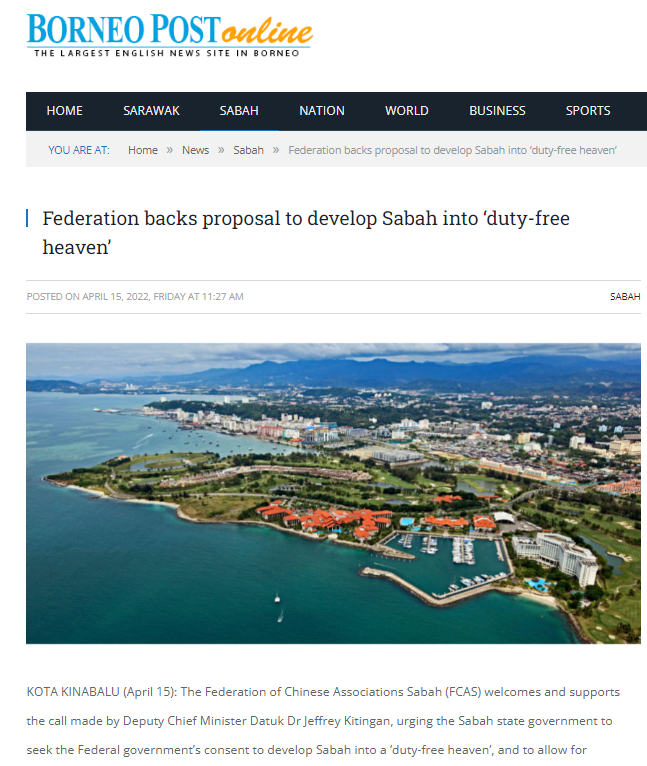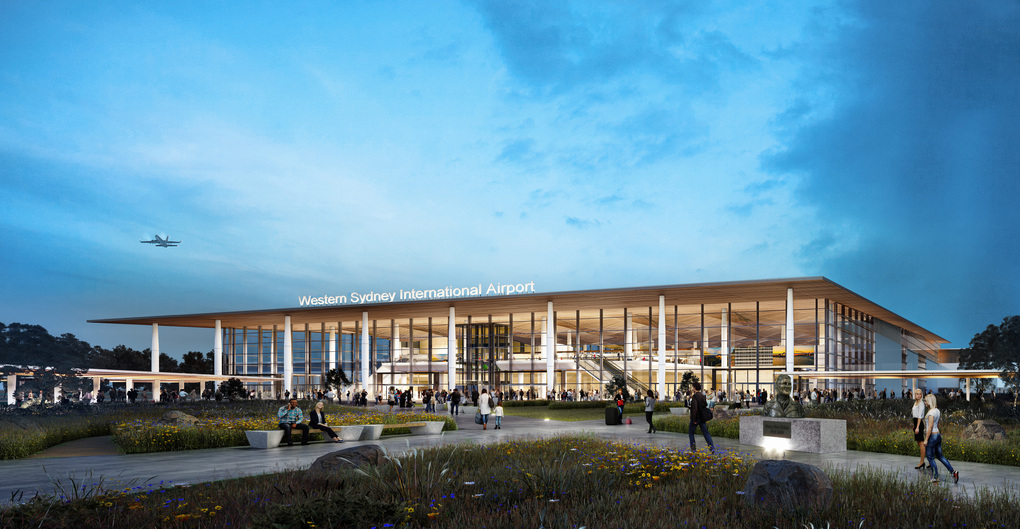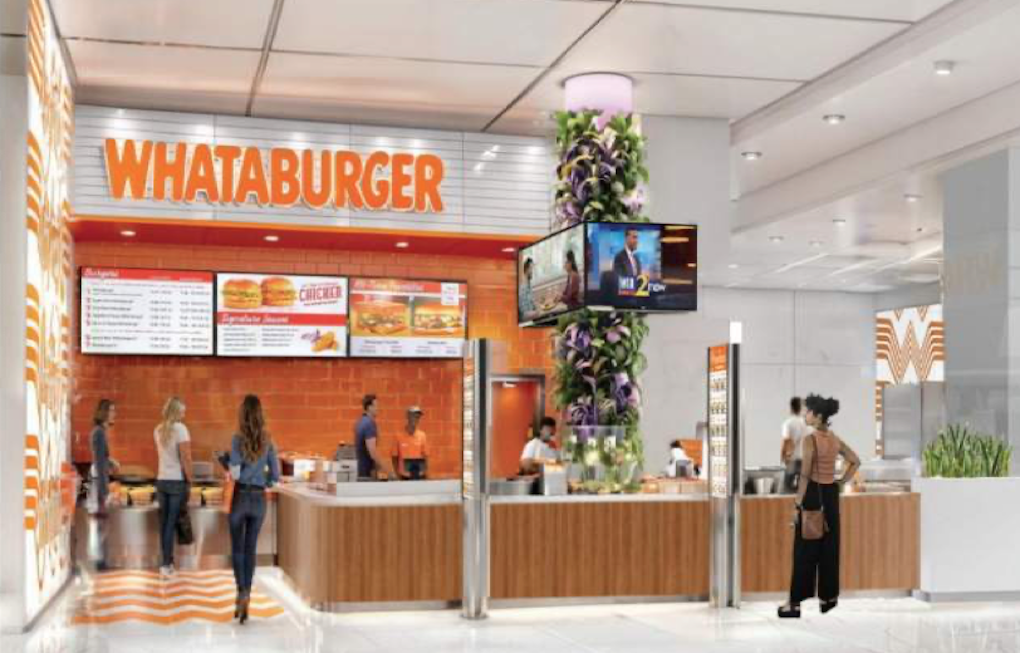MALAYSIAN/BORNEO. Could Sabah, the Malaysian state in the north of Borneo, be the next offshore duty free hotspot?
That’s the serious possibility raised by Deputy Chief Minister Datuk Dr Jeffrey Kitingan, who according to a well-sourced report in the English language Borneo Post Online, is urging the Sabah state government to gain Federal government approval to turn Sabah into a “duty free heaven” and to permit casinos at designated tourist destinations.

Other ‘duty free heavens’Macau, China: Buzzing with luxury downtown duty free shopping run by a variety of retailers, including DFS Group, China Duty Free Group, Duty Free Americas and Gebr. Heinemann. Casinos, open to Chinese and foreigners, are a core part of the tourism sector and pivotal to the retail success. Like its neighbouring Special Administrative Region, Macau is technically free of taxes and duties other than on alcohol and spirits. Okinawa, Japan: DFS pioneered the offshore duty free concept here in 2004 with the opening of a luxury Galleria in Naha’s Omoromachi district. The dispensation granting the store duty free status was granted under a special Law on Special Measures for the Promotion and Development of Okinawa. The Okinawa development would prove the template for Hainan’s adoption of the concept seven years later. Jeju, South Korea: The island to the south of the mainland offers duty free shopping for Korean domestic travellers both at the airport and downtown. Numerous casinos form an integral component of the tourism industry but they are only open to foreigners. Hainan: No casinos but the island province boasts the world’s hottest offshore duty free market, worth some US$5 billion last year. Highly attractive domestic duty free allowances make shopping a critical element of Hainan’s burgeoning tourism sector. Kinmen Islands: Located midway between the mainland Chinese city of Xiamen and Taiwan, Taipei-based travel retailer Ever Rich Duty Free opened Kinmen Ever Rich Golden Lake Plaza on Greater Kinmen Island in May 2015. Locals and foreigners can buy selected goods duty free. No casinos despite intense lobbying a few years back. Penghu: In February 2018, Ever Rich Duty Free’s opened the Discovery Hotel and Profond Pier No. 3 Duty Free Complex, on the main island of the Penghu archipelagao, a popular weekend tourist destination. Casinos have been rejected in two referendums of recent years. |
In an interview with the title, Tan Sri TC Goh, President of The Federation of Chinese Associations Sabah (FCAS), welcomed the Deputy Chief Minister’s call. Goh proposed the state government urgently establish a Special Committee to conduct a study into the proposal.
“We wish to emphasise that FCAS does not encourage gambling, but is of the opinion that the Deputy Chief Minister’s proposal can be a strategic plan to expedite economic recovery for the country, Sabah in particular, post the COVID-19 pandemic,” said Goh.
In a reference to locations such as Jeju (where the casinos are only open to foreigners) in South Korea and Macau, China, Goh said that the combination of ‘duty free heaven’, casinos and tourism had been a global trend for a long time. Like Jeju, Hainan in China and Okinawa in Japan offer so-called ‘offshore duty free’, meaning that domestic travellers can buy duty free goods without leaving the country.
In a statement to Borneo Post Online, Goh said: “We believe, first and foremost, the state government should identify the ‘designated tourist destinations’ which are suitable for the establishment of duty free heaven and the casinos. These places must among others have the attributes to attract domestic tourists and an added advantage of attracting foreign tourists.
“We suggest that these places designated for the development of duty free heaven and casinos, must also have good potential for a comprehensive development of holiday resorts, and recreational and entertainment establishments, and not just for the casino alone.”
He added: “We believe, Sabah which is internationally-renowned for its rich and diverse culture, religious harmony, beautiful nature and abundance of tourist attractions, a wide variety of indigenous cuisines, and couple with its political autonomy, has a vast potential for development of this ‘new tourism industry’, and we hope it can be implemented as soon as possible.”
Click here to read the full report.
The Moodie Davitt Report has reached out to the quoted parties for comment.











